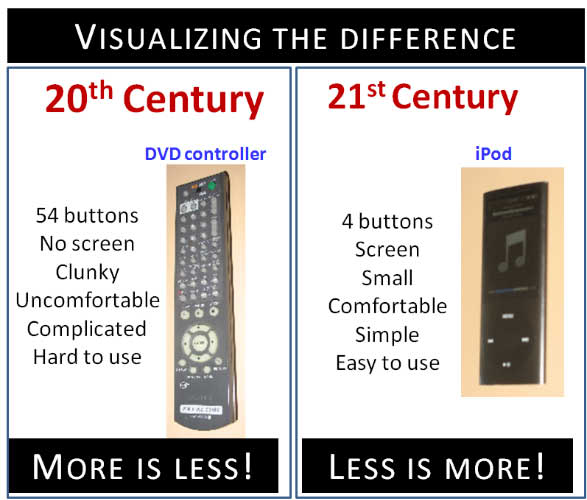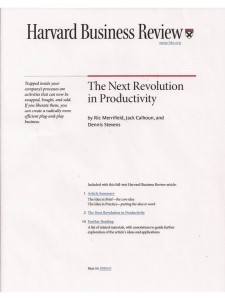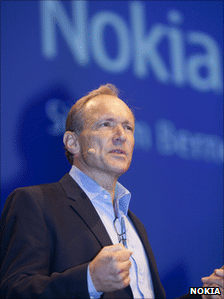
Visualizing the difference between 20th and 21st Century management
I wrote last month about the biggest difference between 20th and 21st Century management. I said there that management in the 20th Century was about achieving a finite goal: delivering goods and services, to make money. Management in the 21st Century by contrast is about the infinite goal of delighting customers; the firm makes money, yes, but as a consequence of the delight that it creates for customers, not as the goal.
That’s a fairly abstract account of the difference. What does it mean in practice? Let’s bring that down to earth with a visual embodiment of it.

Phi Beta Iota: It's not just about functionality and ease of use–it is about what the handheld allows you to access, leverage, exploit, share, and made sense of. The handheld is a key, nothing more. That is why smart phones are history. It is the collective intelligence of all humans that is smart, first one with a dumb device and a full range of M4IS2 services in the cloud wins. Google is math hashing digital garbage–we are not betting on them.
Graphic: Epoch B Multinational Network Rising
2008 COLLECTIVE INTELLIGENCE: Creating a Prosperous World at Peace
Complexity & Catastrophe (91)
Complexity & Resilience (99)







